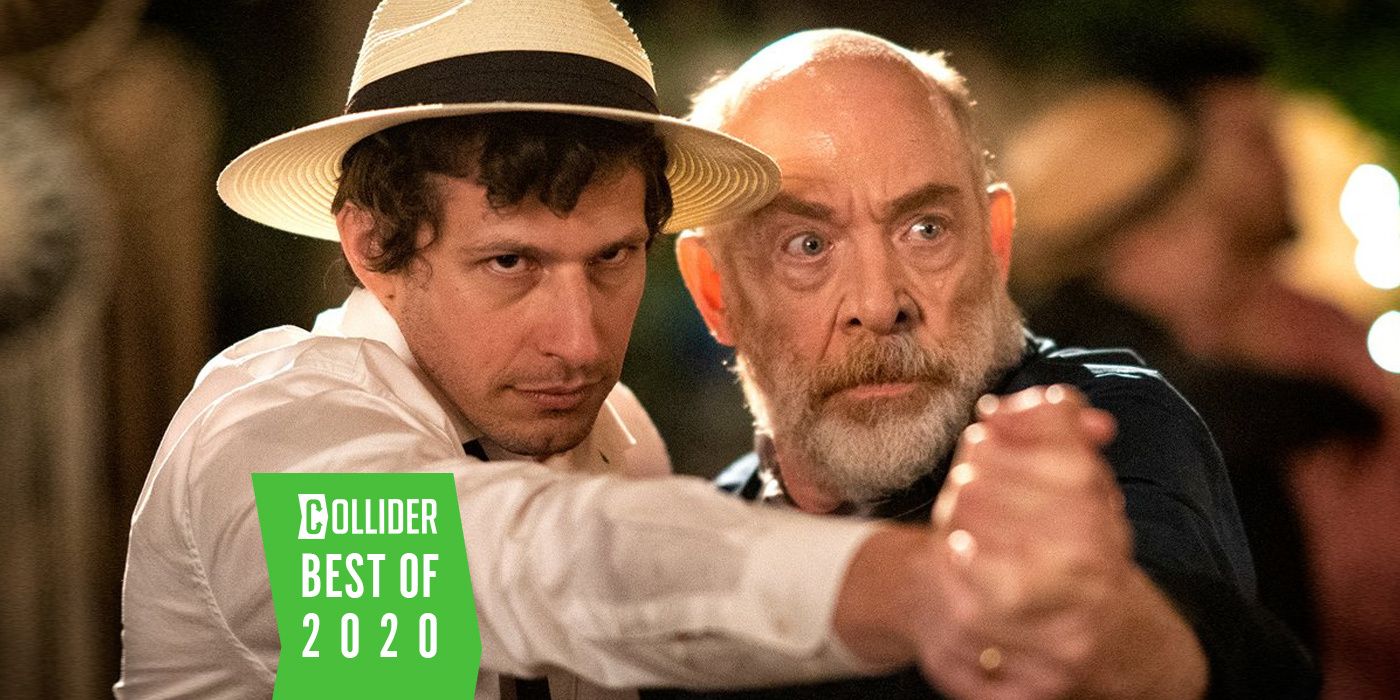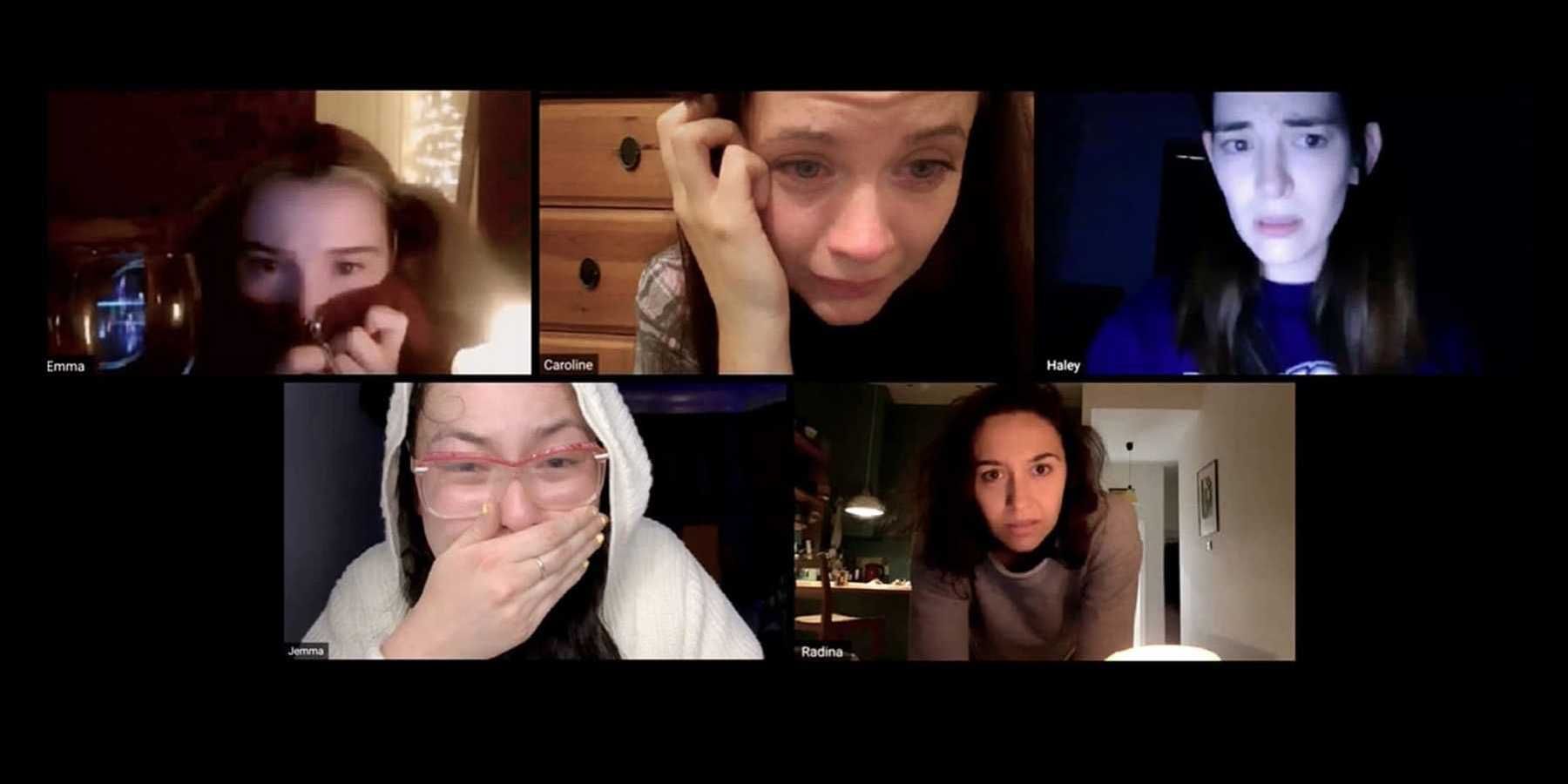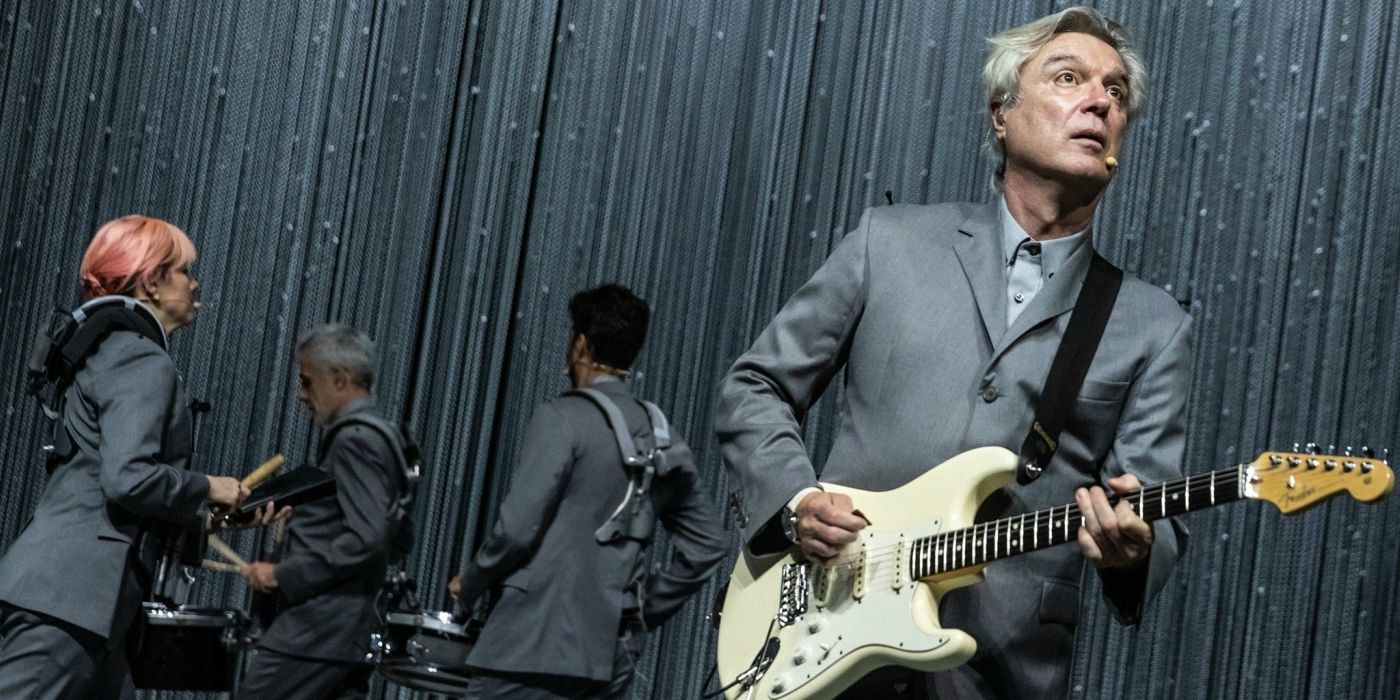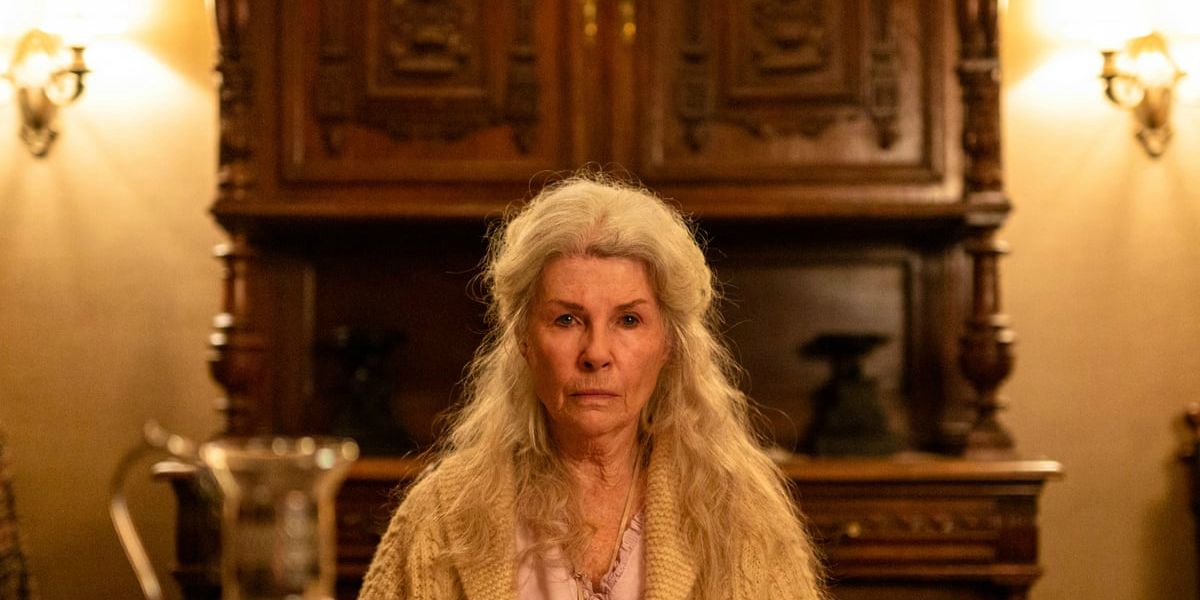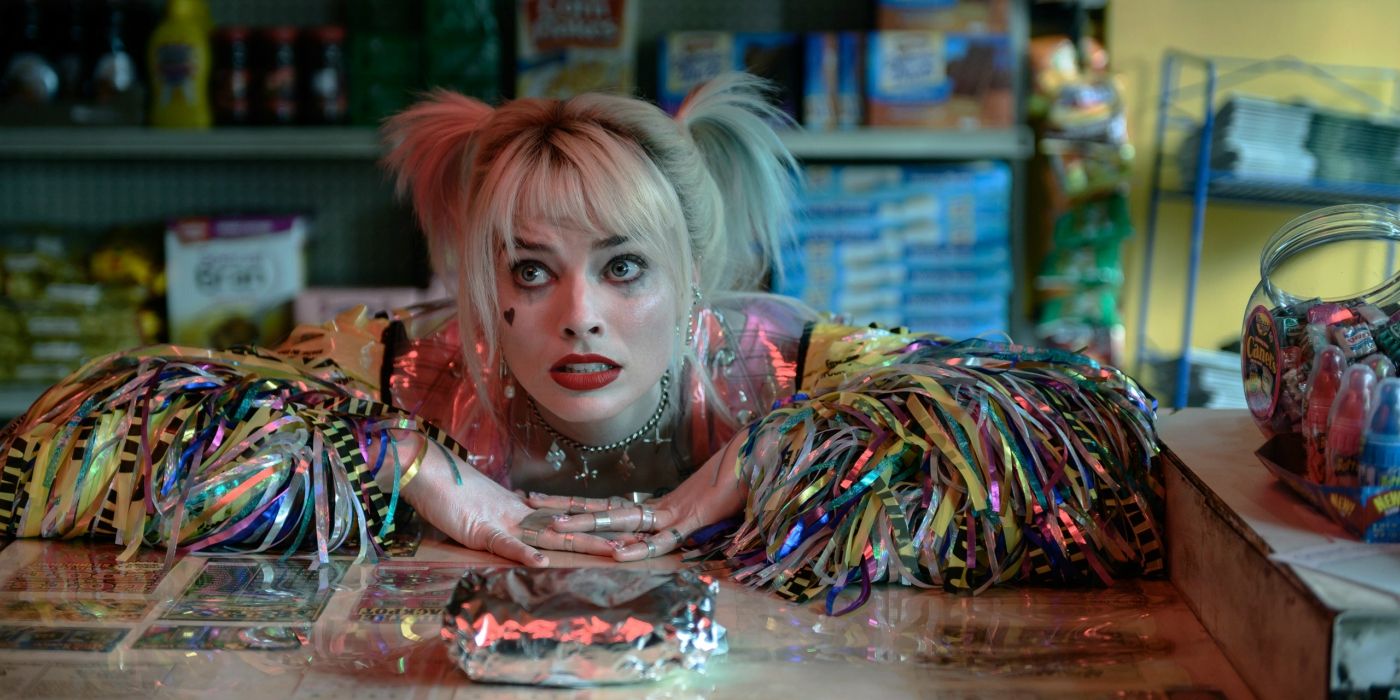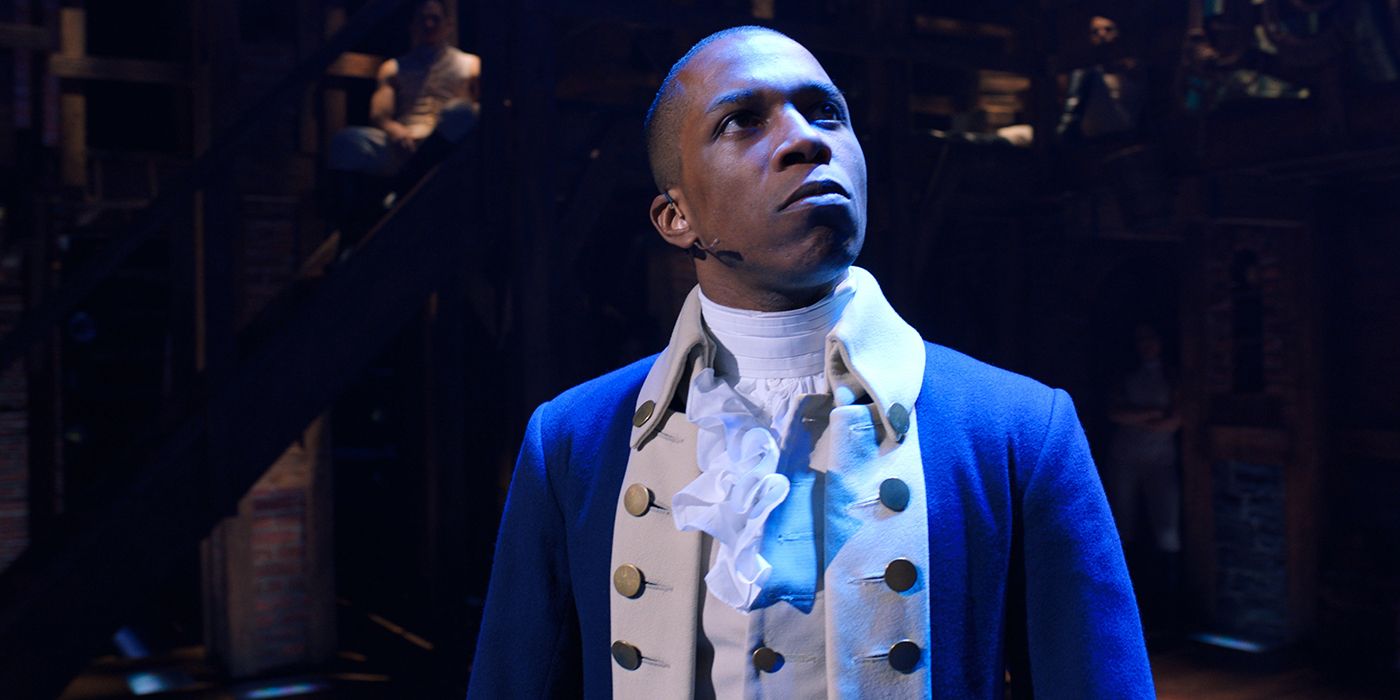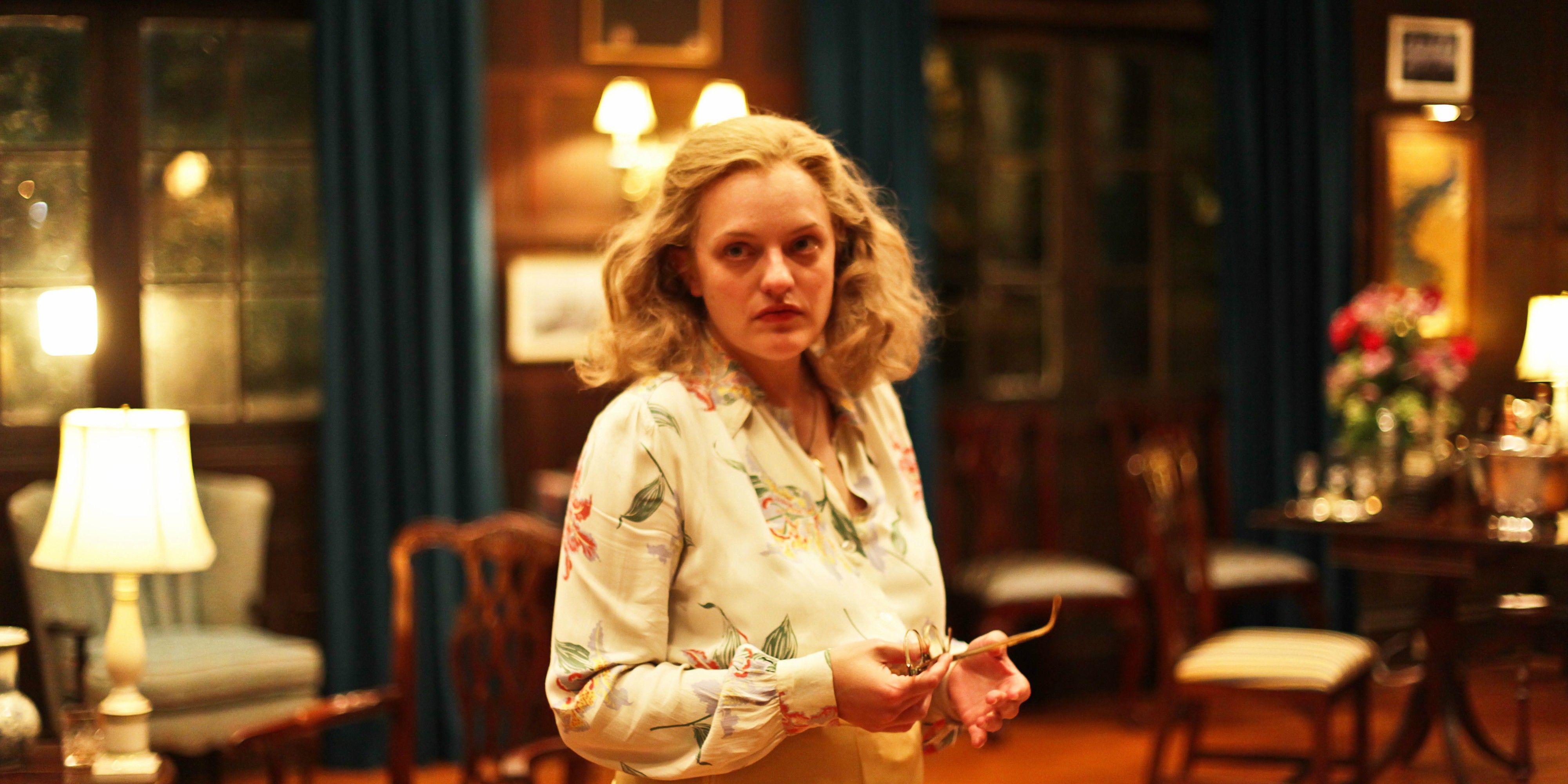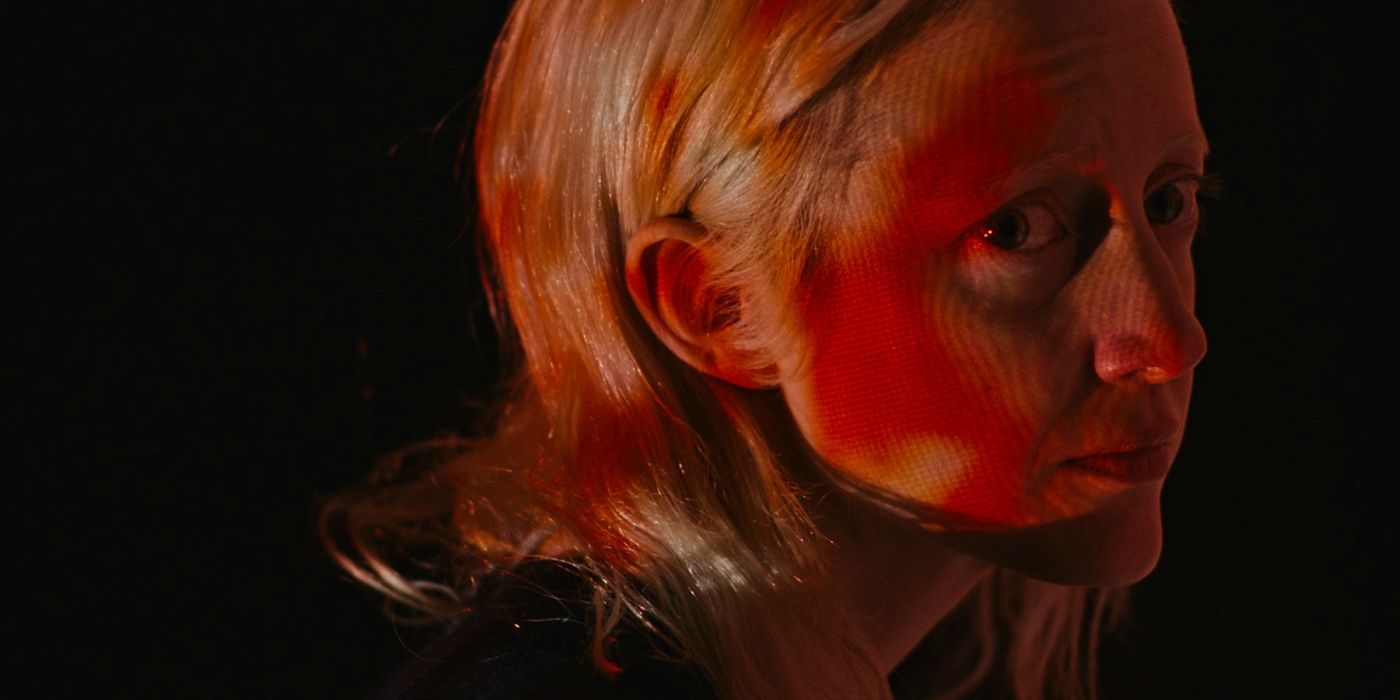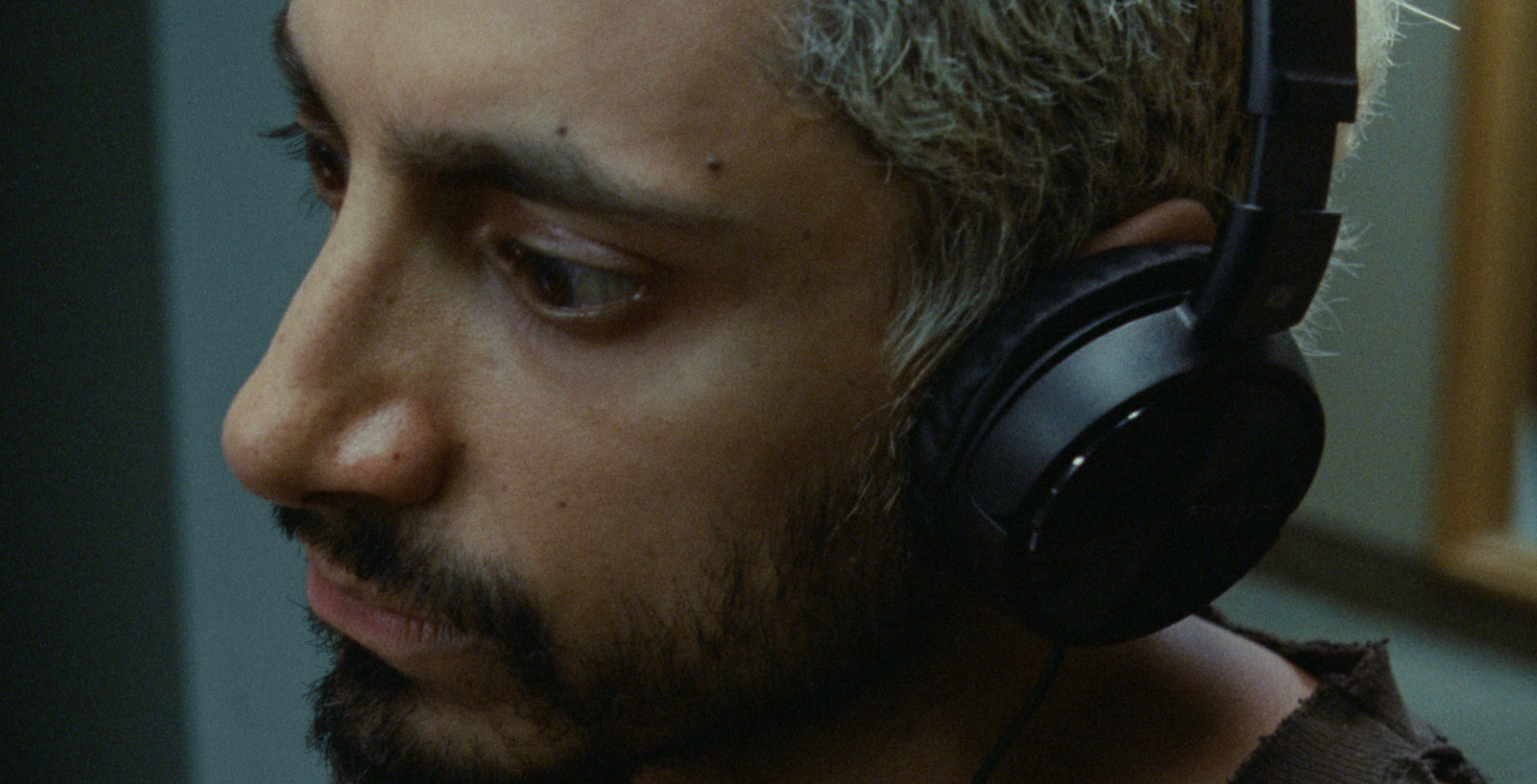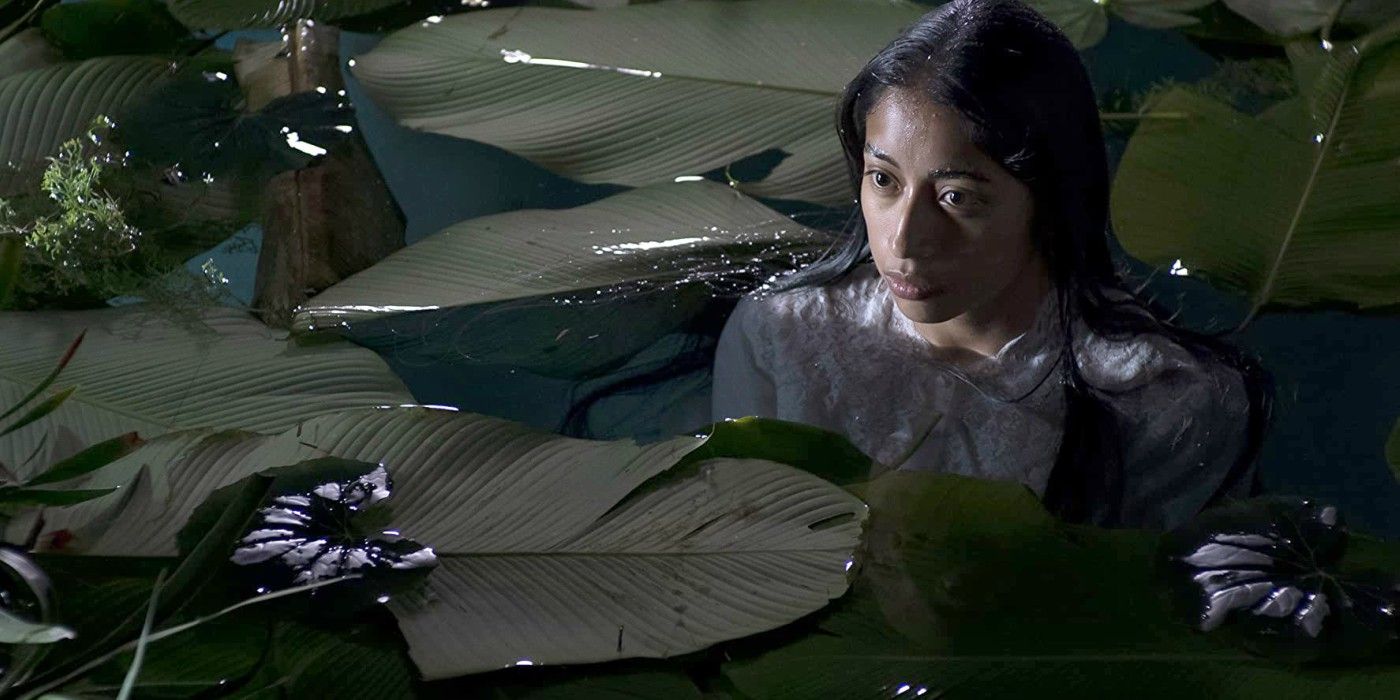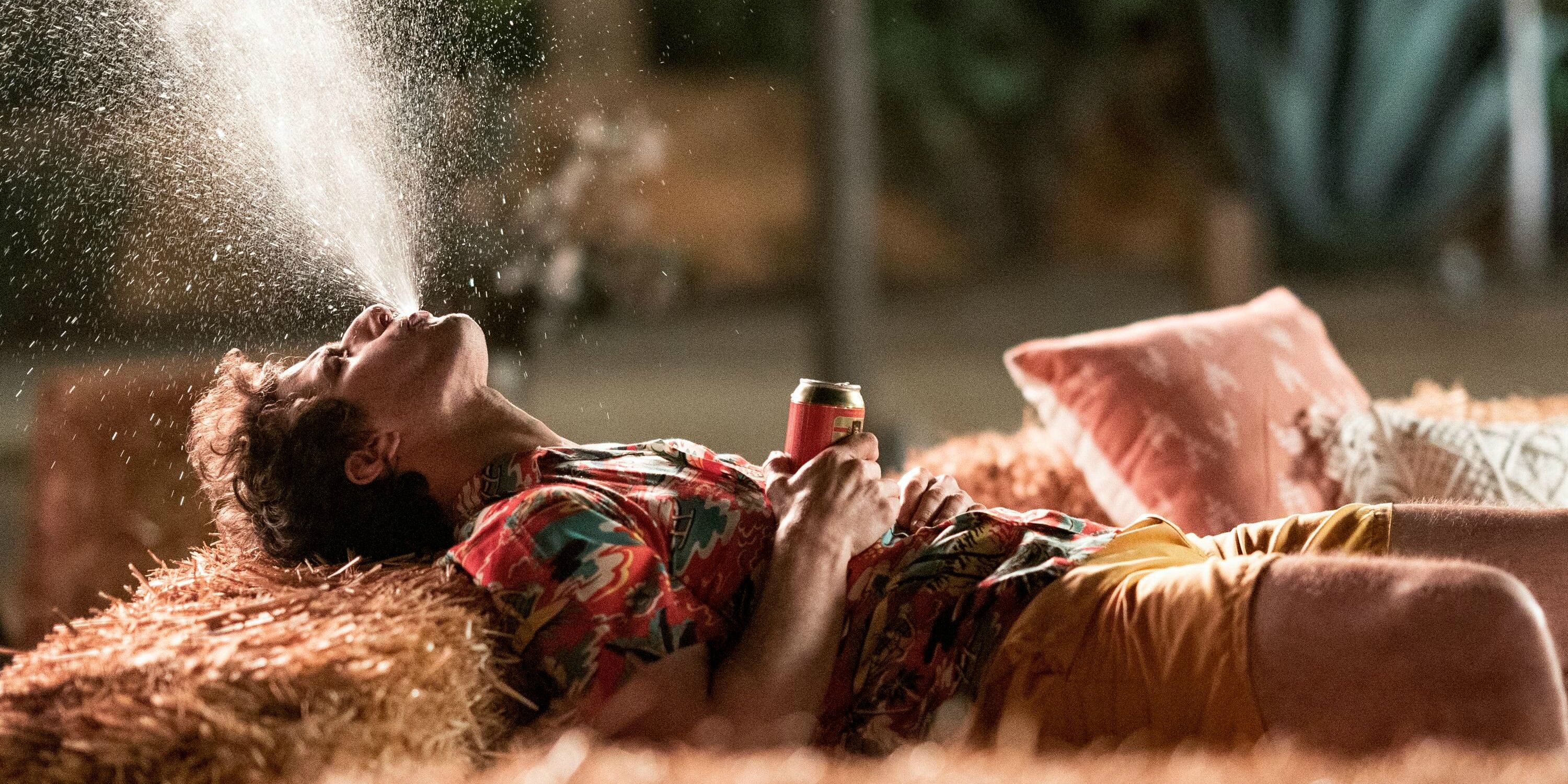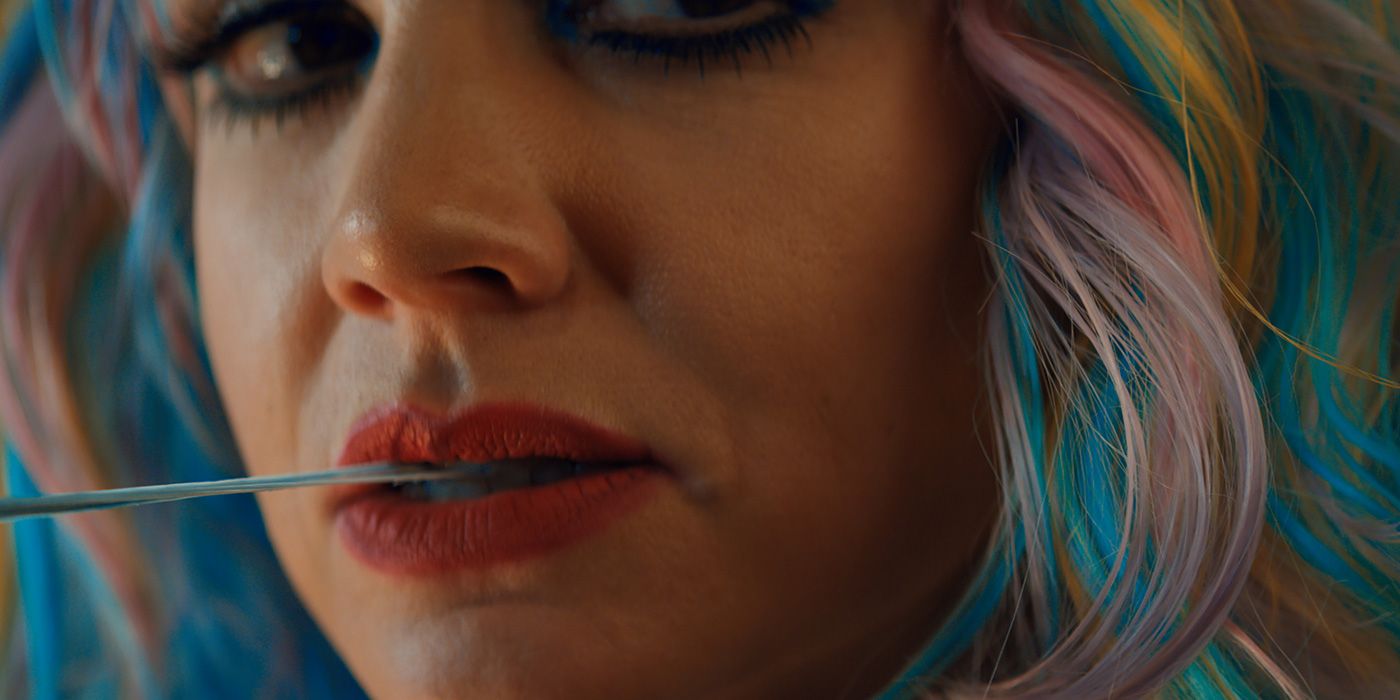Looking for the best movies of 2020? Well, I’m not sure I can help you there. I’m just one idiot with an opinion, after all, and you know what they say about those. But hot damn, there were a lot of good movies in what was, generally, an excruciating trash year and I sure am excited to tell you all about my favorite movies.
I’ve been lucky enough to be in this business for a while, but I never stop getting excited to write these annual lists, where I get to sit down and really celebrate the films that meant the most to me. Sure, you torture yourself about getting it exactly right even though that’s impossible (there will always be at least one movie you wish you included, one you wish you hadn’t, and one you saw after you published that haunts you 'til the end of your days), and these intros always feel especially goofy and self-important to write. But gods, I just love talking about how much I love movies.
On that note, pardon the outrageous wordcount below, especially when I know a lot of folks will just quickly scroll through while scowling and shaking their head at my choices. That’s ok, I probably wouldn’t agree with your picks either. Again, you know what they say about opinions. But for those of y’all who want to go deep with me, I spent a lot of time pouring my heart into these picks and why they stand above the crowd in a year that, despite countless delays and industry-shaking hurdles, was somehow still impossibly packed.
What stood out to me this year? It seems my main themes in 2020 are empathy, catharsis, and existential reckoning. Checks out. The films I loved veered toward arcs about attempting to recover from trauma or heady investigations into the internal life of challenging characters. No repeat directors or stars (though Elisabeth Moss and Spike Lee came very close), but Margot Robbie earned two spots as a producer. A whopping half of the films come from first-time feature directors, and two of my picks are "concert films" of stage productions, which probably speaks to how much I'm craving communal experiences. But I love them all dearly, even the ones that are perhaps a bit too painful to revisit often.
Before the official Top 10, some other random favorites from my year in movies.
• Favorite Older Movie I Watched for the First Time in 2020: Something Wild
• Favorite 2019 Movie I Regret Leaving off my Top 10 Last Year: Pain & Glory
• Favorite Run-Time Flex Because Art Shouldn't Come with Hard Rules: Host
• Favorite Format Flex Because Art Shouldn't Come with Hard Rules: Small Axe
• Favorite performance: Maria Bakalova and Carey Mulligan in a tie, with some wildly different work.
• Favorite Movie I Saw in 2020 That Hasn't Been Released Yet: Dinner in America
And now for the requisite qualifiers.
• My personal Shame List of movies I have not yet watched: Mangrove, First Cow, Collective, Soul, Kajillionaire, Dick Johnson Is Dead, Shithouse, and many, many others I look forward to catching up with.
• Honorable Mentions: Minari, Anything for Jackson, Synchronic, Gretel & Hansel, The Platform, Color Out of Space
• Honorable Mentions That Were So Close to Making The Cut I will Definitely Regret Leaving off at Least One of Them by This Time Next Year: Da 5 Bloods, The Nest, The Invisible Man, His House, Host, Borat Subsequent Moviefilm, Swallow, and Bill and Ted Face the Music (if you would not die for Dennis the killer robit, we are not the same).
And now, at last, my top 10 movies of 2020, vaguely ranked, I guess, if you're into that kind of thing.
David Byrne's American Utopia
David Byrne is a unique kind of genius in that he is so accessible. He clearly has one of those great minds that not only perceives the world through an entirely individual lens, but unlike the many elusive, cagey, or outright toxic creative titans, he isn’t just able or willing to share that perspective in a way that allows us to reframe our own, he’s eager to. Therein lies the magic of David Byrne’s American Utopia, the Spike Lee-directed concert film that graciously invites us to see the world as Byrne does, translated to the stage through music, dance, performance art, some classic Talking Heads songs, and Byrne’s commanding, gentle presence as he frames each piece in direct address to the audience.
Lee is having one heck of a year in his own right and his searing Netflix film Da 5 Bloods came thisclose to making this Top 10. I mean, it’s Spike Lee, so you know he shoots the hell out of this, but American Utopia really is Byrne’s show, a figure who seems to emit a soft glow of radiant warmth and charisma in his understated but unmistakable manner. Though, it must be noted that he shares the stage with a superb team of performers and musicians, not to mention the staging itself, which is a visual delight perfectly suited to the concert film format. All of the elements work in wonderful harmony to create a vibrant, inviting celebration of creativity, community, and connecting with the simple joys of the human experience.
Byrne and The Talking Heads already gave us one of the all-time great concert films with Jonathan Demme’s Stop Making Sense, and I imagine I’ll continue to revisit American Utopia just as frequently for a number of reasons; for all the lessons it imparts, because the songs are straight-up bangers, because I absolutely want to learn that choreography, because it’s a dazzling display of filmmaking that fuses artistic mediums. But I think, best of all, because there is something different to learn and something new to see every time. I’ve thought a lot about one of the anecdotes Byrne shares during the show, in which the iconic musician saw a choir perform one of his songs and it changed his entire perspective on the peice. If Byrne’s not done learning from his art, I can’t imagine I will be anytime soon.
Relic
The first time I saw Relic, it moved me. The second time, it destroyed me. Chalk it up to a year that’s put humanity more intimately face-to-face with imminent mortality than any other era in our lifetimes, but Natalie Erika James’ existential creature feature just hits different now. Centered on three generations of women, the film begins when Kay (Emily Mortimer) and her daughter Sam (Bella Heathcote) return to the family home after her mother, Edna (Robyn Nevin), goes missing for a few days and returns a violently erratic version of herself. Drawing from her own personal experiences with dementia, James crafts a cunning horror story from the nightmare of watching a person you love degenerate into a husk of their former selves. It’s a powerful bit of allegory that goes a long way, and James makes great use of dream imagery and eerie visuals reminiscent of J-Horror (a cinematic style I’m desperate to see make a triumphant return and thrilled to see implemented here), but Relic saves its most profound revelations for its final scenes.
The rest of the movie is great, but the ending is phenomenal. I truly can’t think of another film in recent memory that impacted me so thoroughly, and in doing so, offered such a cathartic confrontation with one of life’s most primal fears – the unavoidable, incontrovertible truth that we all have to watch life decay and slip through our grasp. And most horrific of all, not just ourselves, but every single person we love. That’s the root of a lot of horror, naturally, but rarely is it so explicitly and tenderly addressed, and even more rare, with such integral generosity of empathy.
I’ve noticed that I can’t talk about this film without the word “lovely” coming up, and I think that is ultimately Relic’s greatest strength. Using that great gateway magic of movies, James translates all the tragedy and terror to impart that, yeah, mortality is a fucking nightmare, but at least we’re all in it together. The film’s final scenes remind me of great Surrealist paintings in the way that it embraces the intangible, grotesque, and otherworldly to evoke subconscious truths too sweeping and complex to put into words. For a few moments, Relic takes all that dark, sticky, nasty shit that’s always skirting around the edges of our consciousness and makes it tangible. And that makes it confrontable, if not defeatable.
Birds of Prey (and the Fantabulous Emancipation of One Harley Quinn)
Here it is, folks, my most-watched new movie of 2020, in all her glittering, giddily manic glory. (Midsommar takes the cake for most-watched overall, but you can read last year’s list for my ramblings on that one.) A lot of folks are highkey mad at this movie, and that’s certainly a choice you can make, but I genuinely feel like we saw different films, because for me, Birds of Prey is one of the most joyful movie experiences of the year. I’ll grant you that it’s a messy movie, but like Marie Kondo before me and Oscar the Grouch before her, I love mess. Especially when it’s Harley Quinn’s wickedly deranged mess.
I’m not exactly casual in my love of Harley Quinn. The character’s been a figure of fascination since her debut in a 1992 episode of Batman: The Animated Series, but unlike so many of my childhood fixations, I’ve only grown more fond of and intrigued by her with time. And now that I write about pop culture for a living, I’ve spent a pretty wild amount of hours studying and deconstructing the character (I wrote a piece about her in the Birds of Prey issue of Birth.Movies.Death. magazine that I’m pretty damn proud of, if you can hunt it down.) I was hugely disappointed by her live-action cinematic debut in Suicide Squad, with the exception of Margot Robbie’s impeccable handle on the character.
Enter Birds of Prey, in which Robbie gets to fully flex that command, not just as the star, but as a producer who hand-picked director Cathy Yan for the gig and clearly poured a ton of her creative spirit into the film. Clock where Promising Young Woman landed on this list and you’ll get a pretty good idea of how I feel about Robbie as a producer. Actually, BoP and PYW would make a ferocious and fabulous, dahling double feature as a sort of inverse mirror of each other, because while BoP is very much a superhero movie and the R-rated girl gang movie Robbie set out to make, it’s also a super cathartic story about clawing your way back from trauma and finding the people who will help you move forward. I was lucky enough to visit the set of Birds of Prey and from the moment I laid eyes on Erin Benach’s resplendent costumes, I knew I was going to fall in love with this movie’s aesthetic, but I didn’t expect to be so moved by the depiction of a bunch of weird-ass women fighting for each other.
I’ve already gone on too long here, but I could spend thousands of more words on the details about this film I positively adore, whether it’s Harley handing Dinah a hairband mid-combat, actual film icon Rosie Perez wearing a shirt that says “I shaved my balls for this”, or the fact that a studio superhero movie let Harley power-up with a giant bag of cocaine. (Speaking of which, shout out to John Wick director Chad Stahleski for the assist on those top-notch action scenes.) Yes to all of it. Yes to Ewan McGregor’s high camp villain. Yes to Harley sneaking in an extra stab. Yes to Mary Elizabeth Winstead’s hilarious dunk on billionaire vigilantes (that is somehow also entirely endearing). Yes to how much the other women respect her and help her respect herself. And of, course, yes to the perfect breakfast sandwich.
Hamilton
I debated whether or not to put this one on the list a lot over the last few weeks. It’s not really a movie in the traditional sense, and so much of the wow-factor comes from the sorcery of Lin-Manuel Miranda’s groundbreaking stage show. Is it really fair to compare a recording of a pre-existing piece of art, which has been at the top of my Spotify listens for four years running, to films I just experienced for the first time? Does sob-screaming lyrics at your TV for three hours even count as “watching a movie”? But to hell with all of that, I say, because pound for pound, Hamilton was far and away one of my most beloved viewing experiences of 2020.
As you can probably gather, I am straight up obsessed with Hamilton. I’ve memorized every single line and inflection, I still try to listen to it once a week, and I firmly believe that, despite the criticisms it receives for whitewashing the sins of the founding fathers, history will look back on the wildfire sensation of Hamilton as a formative moment that helped us view our forefathers as flawed humans instead of fixtures in the hagiographies. But beyond the phenomenal cultural impact, a true rarity for the generally inaccessible Broadway, Hamilton is a truly extraordinary piece of storytelling and performance that never fails to move and inspire me.
I already knew that from my literal thousands of listens and having the good fortune to see the Los Angeles production of the stage tour, but what earns Hamilton (2020) a spot on this list is how the filmed perspective completely recontextualizes the experience. As the director of the stage show, director Thomas Kail was perhaps singularly suited to so elegantly capture the intimate details, and his knowing camera always finds the perfect time to punch-in to a closeup or pull back for the full impact of the staging. Moments that breeze by during a listen positively leap through the screen and demand attention thanks to Kail’s directorial inflections, proving everything I thought I knew about the performances was only a fraction of their whole; especially Leslie Odom Jr.’s work as Aaron Burr, which was so much more desperate and tragic than I ever knew. And then there’s that ending gasp, a real trickster thing to keep off the Original Broadway Cast Recording, which entirely alters the experience of Eliza’s final moments.
I remain in utter awe of what is a true masterpiece of its time and while I hope to have the chance to see it on the big screen someday, watching at home proved to be a perfect “moviegoing” experience for 2020.
Shirley
I was always going to be a sucker for Shirley. Josephine Decker left me no choice but to stan after her stunning 2018 breakout Madeline’s Madeline. Shirley Jackson is one of my favorite authors of all time. And I’m an absolute diehard for Edward Albee. So a Who’s Afraid of Virginia Woolf? riff inspired by the life and works of Shirley Jackson? Starring Elisabeth Moss and Michael Stuhlbarg? Interpreted through Decker’s visionary lens? Yeah, I absolutely never stood a chance. And to my great joy, Shirley did not disappoint. In fact, it’s one of my favorite kinds of movies – a film so singular I don’t know that many people I’d recommend it to, but is 100% perfectly suited to my taste.
Shirley does dabble heavily in Virginia Woolf territory, but it is both more reserved and more vicious, and definitely more interested in quiet, internal scorch than explosive hysterics. Decker’s intimate frames prowl through the thorny wilds of Shirley’s pugnacious, electric, intoxicatingly toxic relationship with her husband Stanley (Stuhlbarg) and sets them loose on a naive younger couple (Odessa Young and Logan Lerman) like a pair of hungry, uncaged Shpynxs eager to puzzle and devour their prey.
Set during the period following the early success of “The Lottery”, Shirley finds the legendary author at a creative impasse, perpetually stuck between disgust and rage for everything that falls under her glance. Moss has become the reigning master of playing women on the verge and with Shirley she delivers another whopper, snarling and smirking and seducing with abandon, especially when locking horns with Stuhlbarg’s equally ruthless and manipulating Stanley. In Decker’s hands, it’s a bewitching spectacle, lulling you along before spiking an anxiety bomb into the fray. There’s no shortage of “difficult” geniuses in the history of the arts, but Shirley makes the creative process feel, not just daring, but dangerous; a war fought on the battlegrounds of the human heart, body, and soul.
Possessor
Soft stomachs, beware! Brandon Cronenberg’s psychedelic mindfuck is easily the most brutal, uncompromising movie I’ve seen this year and, my dudes, I watch a lot of horror. A genre mash-up that transports us to a fictional future that doesn’t feel nearly fictional enough for comfort, Possessor stars Andrea Riseborough as Tasya Vos, an assassin who used mind-control technology to take over the body of unsuspecting victims, using them as a vessel to execute her targets, and “killing herself” on the way out, leaving behind the corpse of a perfect fall guy. So yeah, brutal. But fascinating.
Cronenberg uses his core concept to flesh out a universe where there’s the promise of an untold story around every corner but he wisely resists the temptation to get lost in world-building, instead, remaining firmly focused on the absolutely effed character drama at the film’s core. Tasya is already a tattered mess when we first meet her, losing her sense of self in the constant transformations and losing her sense of humanity in the heinously violent means with which she dispatches her victims. But when she settles in for her next job, her otherwise unremarkable mark fights back, locking them in an amorphous battle for dominance and identity in which there can be no real winner. Christopher Abbott, who double-whammied us with Possessor and Black Bear this year, proving that he is, in fact, the Best Chris Actually (but I guess Film Twitter isn't ready for that conversation yet), is impeccable in a supremely tricky role that somehow convinces you Andrea Riseborough is doing a lot of the work that he is. Not that Riseborough isn’t incredible in her own right. Of course, she is. Has she ever not been?
But that’s the great trick of Possessor, who’s who, and who can even keep track? Cronenberg does an excellent job communicating who’s in charge when he wants you to know, but the bigger question isn’t who’s in the driver’s seat, so to speak, it’s whether they, or you, or me, or anyone can really tell who we are at all. Ever. What makes a consciousness a person, and what makes a person a human? Cronenberg explores those light and breezy questions with carnal grandiosity, proving himself a filmmaker that will fearlessly, aggressively transgress into taboo territory, but not with the indulgence of a reckless provocateur. It’s excess in precision, character work through chaos, and the film’s explicitly made points have wormed around in my brain from the moment I recovered from the shock enough to start processing -- a compelling but cruel new creature that lives in my head rent-free, nibbling away at my sense of self.
Sound of Metal
When I think about Sound of Metal, one word always comes to mind: Grace. Not just the film’s grace, though it is a stunning and elegant work of extraordinary immersive design, but the grace we give to others and those moments of transcendent beauty when we finally stop withholding it from ourselves. The feature debut from The Place Beyond the Pines co-writer Darius Marder, Sound of Metal stars Riz Ahmed as Ruben, a drummer who rapidly loses his hearing, sparking a new bout with addiction, but instead of drugs or drink, Ruben now clings to the toxic idea that he can somehow claw his way back to life as he knew it, dependent on the fantasy that everything can just go back to normal. After all, what is addiction but the self-damning notion that we can improve our reality by drowning it out?
There are a lot of phenomenal accomplishments in Sound of Metal. The sound design is a masterful miracle of empathy, leaving us just as awash in the sensory overload as Ruben himself. Ahmed, as he always does, delivers an award-worthy performance, jittering and jolting through his trauma with tangible yearning - the futile, erratic gestures of a raw nerve desperate not to feel. And I can barely even think about Paul Raci’s understated, compassionate work as the firm but supportive counselor, Joe, without welling up in tears. All the elements flow together in a gorgeous composition that walks us through the stages of grief, hand in hand with Ruben, without ever turning to textbook lectures or pandering sentimentality.
A lot of people have tried to make movies about what it feels like to live through this year while we’re still in it, but Sound of Metal is one of the most timely films of the year because of its universal humanity. How do you process a trauma that forever alters the fundamental texture of your life? What does it mean to get past surviving and get back to living? If I ever find myself with the composure, wisdom, and tender strength Joe displays in his final scene, I’ll know I’ve done something right. For now, I’m still a Ruben, flailing in the fires where that kind of strength is forged. But walking with Ruben on his path to grace gives me hope for my own.
La Llorona
Nothing else I saw this year caught me off guard and completely floored me like La Llorona. First thing’s first, no, this is not related in any way to the Conjuring-verse film from last year, a misconception I’ve seen online a somewhat shocking amount. And despite being a Shudder original, it’s not the ghost story you’re probably expecting either. It’s horrific and haunting, but the paranormal is underplayed, making way for the much scarier human horrors. I’ll admit, I was surprised that Guatemala picked a Shudder film for their Oscar submission – not as a slight on Shudder, which I love, but because of all those misconceptions I just mentioned (and let’s be honest, the Academy’s notorious distaste for genre) – but now that I’ve seen it, I think it could and should be a frontrunner… as long as all those labels don’t get in the way.
Director and writer Jayro Bustamante reimagines the legendary figure of La Llorona in the character of Alma (María Mercedes Coroy, who dominates the film with her unearthly commanding presence). Thirty years after she and her children are murdered during a military genocide, Alma comes back to haunt the dictator responsible when he’s acquitted of charges. It’s a stunning examination of guilt and complicity, told through a household curdled by atrocity, where a cacophony of protestors lingers outside every window (allowing for brilliant use of sound design throughout) and Alma sidles through their most intimate moments on her quiet mission of vengeance.
Bustamante crafts stunning imagery throughout, evoking Alma’s power without relying on the traditional language of supernatural cinema, framing each shot with the richness of an oil painting, but the film delivers its biggest powerhouse punch by dissecting and dismantling the dictator’s family. The rationalizing wife, who pardoned and overlooked her husband’s inhumanity long before the courts and the suspicious daughter who always shoved down the dark truths she wouldn’t let herself know; Alma strips away lies they’ve told themselves until there’s no choice but to really look and actually see the heinousness of their home. It’s like if The Act of Killing was a poetic, poignant ghost story and it's devastating.
Palm Springs
Boy, aren’t we sick of our silly selves and our silly little lives? Doppelgangers, parallel realities, and time loops are all the rage in genre storytelling right now, and really, who could blame us for hoping there’s another, maybe better, version of it all out there somewhere? That said, the Groundhog Day riffs were starting to feel a bit stale, but just when you thought you were tired of time loops, Palm Springs shows up to breathe new life into the tired tropes. Produced by The Lonely Island and helmed by first-time feature director Max Barbakow, Palm Springs stars Andy Sandberg and Cristin Miloti as Nyles and Sarah, two strangers who wind up trapped in a time loop together during a wedding.
Sandberg strips down his goofy schtick and it works, Milotti continues to prove she is the universal conductor of on-screen chemistry, and together, they are an electric duo capable of both the intricate comedic timing and emotional depths required to pull off the film’s feel-good-but-actually-pretty-deep-and-dark magic trick. What starts as a fairly familiar feeling rom-com evolves into something unexpected and more meaningful, entirely without warning (I cannot recommend showing this to someone who doesn’t know what it’s about enough), and it delivers one delightful surprise after the next all the way to the finish line. Palm Spring doesn’t do scene transitions, it fires through them with a bow and arrow, crashes through them with a speeding truck, always zigging when you expect it to zag with that irreverent but expertly constructed sense of humor we’ve come to expect from The Lonely Island.
It’s not just an inspired creative piece of genre storytelling, it’s a touching and poignant story about why everything matters, the importance of choice and consequence, even in a world where it can all feel meaningless. It surprisingly might be one of the most effective movies made about the importance of empathy and integrity, which emanates into every element of the film. Not just the obvious ones (“nothing worse than dying slowly in the ICU”), but even in the film’s most minor subplots and world-building details. Whether it’s Sarah’s obviously hand-crafted outfit to celebrate Nyles’ birthday, the amount of time they spend rehearsing just to pull off their silly dance number, or what is easily my favorite way any character has ever escaped a time loop, no matter how many times they live the same day, their best days are always when they chose to try. But best of all, it’s just a pleasure to watch, and an infinitely rewatchable one at that. (If you’ve only seen it once, I highly suggest you revisit Nyles’ intricately choreographed dance floor saunter again to appreciate it in a whole new light.)
I never would have guessed Palm Springs would end up this high on my Top 10, but there’s no denying the amount of happiness and comfort this film has brought me in an impossibly hard year. It’s a dirtbag love story for the ages, and somehow I got this far without even mentioning how much J.K. Simmons rules in it. But it’s J.K. Simmons, so you already knew that.
Promising Young Woman
Honestly, just fuck me right up, Emerald Fennell. Just all the way up. There’s a moment early in Promising Young Woman when Carey Mulligan’s (giving the performance of her career so far) quietly crusading vigilante is having an average shift at her day job and she runs into an old friend from med school played by Bo Burnham (who is also outstanding). They joke, maybe flirt, he tells her she can spit in his coffee if she wants. And then she does, staring him straight in the eye. The look on Burnham’s face couldn’t be more clear – fuck, did I just fall in love? – and I would know the feeling because that was the exact same moment I fell head over heels for this film.
I don’t know what I expected from Promising Young Woman, but it certainly wasn’t this decadent, delicious killer confection. A candy-colored, pop princess rallying cry of carnal rage, Promising Young Woman has been branded a "#MeToo revenge thriller" and I guess it is that, but only in the most reductive, marketable, politicized sense – and one that’s likely to give people a set of false expectations around exactly what kind of emotional warfare they’re walking into. Because this is one absolute prickly bitch of a movie, and proud of it.
Fennell took over for Phoebe Waller-Bridge as showrunner on the second season of Killing Eve and she carries Villanelle’s glammed-out viciousness with her into her first feature film like a bedazzled scalpel, but PYW is an entirely different beast with an even sharper bite. Even if I wasn’t worried about spoilers, I still couldn’t really tell you why I love this movie so much because you have to really feel that bite first-hand and let Fennell’s sickly sweet venom pull you under. It's going to piss a lot of people off, but the third act pivot might just be the most honest confrontation with misogyny I've ever seen. I’m still hashing out how I feel about the film’s final moments, but I will mince no words when I say that I think everything that comes in the first hour and fifty minutes is pretty much a masterpiece of tonal tightrope-walking; except the rope is actually razor wire, the safety net is on fire, and Prince Charming is definitely not coming to your rescue if you fall. I'm genuinely in awe of what Fennell accomplishes here. And I’m not just saying that because this movie finally gives us all the opportunity to admit that “Stars Are Blind” is a great pop song.
Looking for more of the year's best? Check out our Top 10 Shows of 2020.

